Columbia Law School Human Rights Institute Highlights Student Achievements
July 1, 2021 NEW YORK – The Columbia Law School Human Rights Institute (HRI) is thrilled to congratulate twelve Columbia Law School graduates for receiving prestigious awards and fellowships this year. HRI faculty and staff collaborated with these JD and LL.M. students throughout their time at Columbia—advancing new research, advocacy, and scholarship to influence the human rights field. Read more about their human rights work at Columbia, what drives them to do social justice work, and how they will put human rights principles into practice post-graduation.
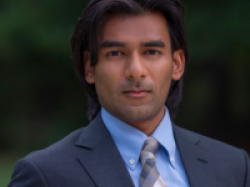
Adi Radhakrishnan, JD ’21 is the recipient of the Edwin Parker Prize, the Parker School Recognition of Achievement in International and Comparative Law certificate, and the Sandler Fellowship. He has committed significant time at CLS to advancing the rights to health and education globally. On campus, he worked as an HRI research assistant and participated in a year-long Human Rights Clinic project in Kashmir. Working with local partners, Adi engaged in participatory action research and advocacy to improve higher education and access to physical and mental health during the ongoing conflict. Since 2020, Adi has collaborated with civil society organizations and researchers to track COVID-19 responsive policies and advocated for approaches that center human rights. As a 1L, Adi worked with the Mailman School of Public Health and ICAP-Kenya, an NGO building the capacity of community health. Adi’s own research and scholarship explores the intersection of health rights and atrocity crimes in China and Myanmar, and has been presented at the HRI Student Paper Symposium and the Salzburg Cutler Law Program. Post-graduation, Adi will work at Human Rights Watch as a Leonard H. Sandler Fellow.
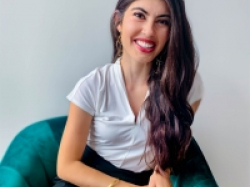
While at Columbia, Parker School Recognition of Achievement in International and Comparative Law certificate awardee Anita Yandle, JD ’21, focused on human rights in the United States and internationally. During her time at the Economic Commission for Latin America and the Caribbean at the UN, she advocated for increased access to environmental justice and land rights for indigenous communities, and in the appeals unit in the International Residual Mechanism for Criminal Tribunals in The Hague, she focused largely on reproductive violence as a form of genocide. Domestically, Anita worked with the ACLU’s National Prison Project to advocate for adequate healthcare in immigration detention centers, jails, and prisons. She monitored a trial against Thai dissidents for the TrialWatch Project of the Clooney Foundation for Justice as a Human Rights Clinic student. Anita was highly involved in organizations on campus. She was also a James Kent and Harlan Fiske Stone Scholar and a recipient of both the Davis Polk Leadership Initiative Innovation Grant and the Plaxen & Adler Civil Justice Scholarship. After graduation, Anita will fight barriers to justice for migrant farmworkers as the Justice Catalyst Fellow and Access to Justice Litigation Fellow at Public Justice in Washington, DC.
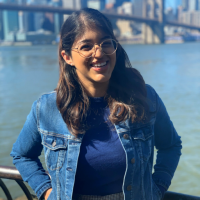
During her time at Columbia, Parker School Recognition of Achievement in International and Comparative Law certificate awardee Aroosa Khokher, JD ’21, focused on advancing racial and economic justice and voting rights in the United States. A member of the law school’s Human Rights Clinic, Aroosa worked on issues of access to affordable and adequate sanitation for low-resource rural communities. Aroosa spent her 1L summer at the Brennan Center for Justice reforming redistricting practices and strengthening voting rights. As a member of the human rights community, Aroosa researched and wrote about data privacy and AI in the European Union, participated in the European Law Moot Court Competition, and served as Notes Editor on the Columbia Human Rights Law Review, where she also published her Note, “Free and Equal Elections: A New State Constitutionalism for Partisan Gerrymandering.” She was also named a James Kent Scholar. Aroosa will work as an associate at Covington & Burling after graduation and hopes to take her passion for human rights with her throughout her career.
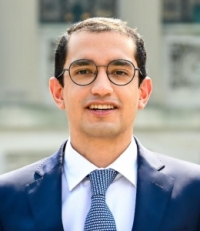
Recipient of the Leebron Fellowship Bruno Acevedo, LL.M. ’21, has dedicated his career to advancing rights and democracy, particularly ensuring the independence of institutions that make liberal democracy possible. Prior to his time at Columbia, Bruno worked on cases addressing the right to vote, claims of electoral fraud and violations of political speech, and the rules governing Mexican elections, at both Mexico’s High Electoral Court and Supreme Court of Justice. His legal work also sought to secure the rights of indigenous communities in Oaxaca, Mexico. As a student in the Human Rights Clinic, Bruno deepened his understanding of human rights strategies and tactics. Acevedo plans to use this knowledge to address the harmful impacts of the militarization of the police in Mexico.
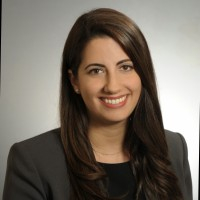
Connie Budaci, LL.M. ’21, recipient of the LL.M. Public Interest and Government Fellowship, is driven by a desire to reduce inequalities within the justice system and advance access to justice. Prior to her LL.M. at Columbia, Connie worked for the Ontario Superior Court of Justice as a clerk, and then Counsel in the Office of the Chief Justice. As a law school student, she summered with the Wayne County Prosecutor’s Office and the Ontario Securities Commission and volunteered with Community Legal Aid. During her year in the Human Rights Clinic, Connie conducted research and advocacy to support the fair trial rights of pro-democracy protestors in Thailand. While at Columbia, she also interned with the Bronx Defenders and the Center for Public Research and Leadership. Connie is primarily interested in the intersection between human rights and criminal justice work. Following graduation, she will work as a research associate at the Sentencing Project as a Columbia LL.M. Public Interest and Government Fellow.
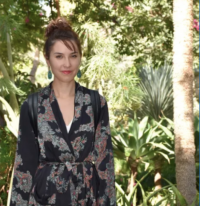
Kate McFarland, LL.M. ’21, recipient of the Jane Marks Murphy clinic graduation prize and the Parker School Recognition of Achievement in International and Comparative Law certificate, first realized she wanted to work in human rights when she was a student journalist in Cairo documenting the protests against former president Mohamed Morsi in Egypt. While at McGill University, Kate interned with the International Criminal Tribunal for the former Yugoslavia in the trial chamber that handed Ratko Mladić a lifetime sentence for genocide and crimes against humanity. When McFarland moved to New York, she continued to work in international human rights. At Justice Rapid Response (JRR), an organization that deploys justice experts to investigate and prosecute atrocity crimes and human rights violations around the world, she focuses specifically on the investigation, documentation, and prosecution of sexual and gender-based violence. Her work with JRR has given her a comprehensive understanding of transitional justice and international human rights law in practice. She hopes to continue to advocate for better access to justice for survivors of sexual violence both internationally and in her home country of Canada.
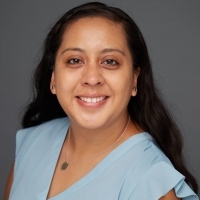
Parker School Recognition of Achievement in International and Comparative Law certificate recipient Kimberly Mejía-Cuéllar, JD ’21, is the daughter of Mexican and Salvadoran immigrants. Watching her parents struggle to obtain legal status helped her appreciate the power of legal advocacy. As an undergraduate at Yale, Kim was an Arthur P. Liman Summer Fellow at the American Civil Liberties Union’s Immigrants’ Rights Project (ACLU IRP). As the recipient of the Columbia Center for Japanese Legal Studies Public Interest Fellowship, Kim researched business and human rights violations in Asia and drafted statements given to the U.N. Human Rights Council for Human Rights. As a student in the Human Rights Clinic, Kim worked on the TrialWatch Project of the Clooney Foundation for Justice and monitored a criminal trial on freedom of expression in Thailand. Kim was Online Editor for the Columbia Human Rights Law Review and interned at both the Columbia Center on Sustainable Investment and ACLU IRP. Kim is a Harlan Fiske Stone Scholar and recipient of the Richard Paul Richman Leadership Fellowship. Kim will join a law firm post-graduation and she is excited to continue exploring human rights law by undertaking more pro bono work.
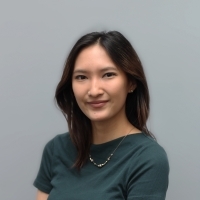
Parker School Recognition of Achievement in International and Comparative Law certificate recipient Lauren Chang, JD ’21, is interested in working at the intersection of gender, environmental rights, and human rights. After earning her M.A. in biology from Wesleyan, Lauren headed to Nairobi, Kenya, as a Princeton in Africa Fellow. In Nairobi, Lauren worked in communications at African Women in Agricultural Research and Development (AWARD), a non-profit aimed at promoting women’s leadership and gender responsiveness in African agricultural science, where she had the opportunity to spotlight women scientists in a different cultural context from her own. While at Columbia Law, Lauren focused on gender equality at the Legal Resources Centre in Cape Town, South Africa through a summer internship. As a 2L, she participated in the Human Rights Clinic, working with local stakeholders to assess and improve higher education in South Asia. In the future, Lauren hopes to continue working with international grassroots organizations to promote and strengthen gender equality and its intersection with environmental rights in a culturally sensitive manner.
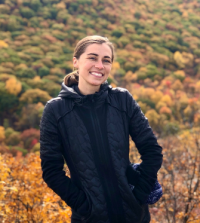
Meg Gould, JD ’21, recipient of the Jane Marks Murphy clinic graduation prizeand the Parker School Recognition of Achievement in International and Comparative Law certificate, is dedicated to advocating for access to justice and human rights in the United States and abroad. She grew up in Memphis, where early exposure to the power of community-driven advocacy led her to law school to hone her advocacy skills. At Columbia, Gould served on the board of numerous student organizations and, during her 1L year, was awarded the Davis Polk Leadership Fellowship, through which she co-founded the Paralegal Pathways Initiative, a collaborative program that connects incarcerated individuals with employment opportunities in the legal field. As a student in the Human Rights Clinic, Meg engaged in legal advocacy to promote transitional justice in the Central African Republic. She also interned with AdvocAid–Sierra Leone, the International Legal Foundation, the Maryland Federal Defenders, and the Bronx Defenders. Meg spent her 3L spring externing with the Office of the Legal Adviser for the State Department. In the short term, Gould plans to gain experience in criminal defense or prisoners’ rights litigation. Her long-term hope is to become a clinical professor like some of her human rights mentors.
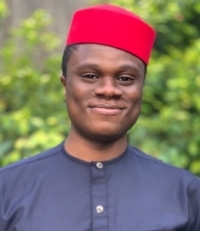
As an undergraduate student, LL.M. Public Interest and Government Fellowshiprecipient Obinna Maduka, LL.M. ’21, volunteered to teach children’s rights at an Internally Displaced Persons camp and served as a United Nations Humanitarian Policy Youth Consultant in Qatar. In recognition of his work, the German government granted him a scholarship to study the mechanisms of the European human rights protection system. In 2017, Maduka built on the lessons he gained over the course of his studies in Nigeria and Germany and launched the inaugural cohort of a human rights protection fellowship. In Nigeria, Obinna founded the Project Freedom Initiative and secured the freedom of several individuals unlawfully detained by law enforcement. At Columbia, Maduka broadened his knowledge of human rights and advocacy through his participation in the Human Rights Clinic. He contributed to the community by organizing a public interest leadership program that brought experienced activists to talk about their work and career trajectory to law students. Upon the completion of his LL.M, Obinna will join a law firm and actively work in the pro-bono practice.
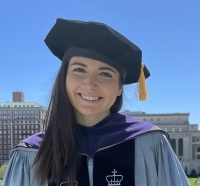
Leebron Fellowship and Parker School Recognition of Achievement in International and Comparative Law certificate recipient Shannon Marcoux, JD ’21, was inspired to work on human rights and the environment by her experience living and teaching in the Federated States of Micronesia. Throughout her time at Columbia, she sought to engage with practical human rights research and advocacy while always working to make Columbia’s own human rights community more accessible and inclusive. Her experience in the Human Rights Clinic and numerous internships allowed her to explore human rights, corporate accountability, and environmental justice and cultivated her long-term career interests. Through engagement with HRI's 1L Advocates Program, Rightslink, and the Student Public Interest Network, Shannon was exposed to an array of pathways in the human rights field. After graduation, she will work closely with communities in Southern Africa that have been adversely impacted by extractive industries and climate change as a Leebron Fellow with the organization Natural Justice.
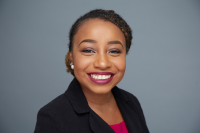
Udodilim (U.d.) Nnamdi, JD ’21, recipient of the Parker School Recognition of Achievement in International and Comparative Law, is driven by a passion to center marginalized populations when seeking redress for human rights abuses. While at Columbia, U.d. worked for the former UN Special Rapporteur on Extreme Poverty and Human Rights and supported grassroots, African women-led organizations through Columbia University Earth Institute’s Women, Peace, & Security Program. As a Davis Polk Leadership Fellow, U.d. developed a project to diversify the international human rights field. U.d. was a SIPA International Fellow and involved with the Human Rights Law Review, Columbia’s Society for International Law, RightsLink, and the Black Law Student Association. She also worked on the Central African Republic war crimes accountability project at the Human Rights Clinic. As a 3L, U.d. pursued her JD/LLM in International Criminal Law with the University of Amsterdam and interned at both the Center for Constitutional Rights and the Center for Justice & Accountability in support of domestic human rights litigation. U.d. was a co-leader recipient of CLS’s inaugural anti-racism grant for a project supporting the development of a reading group on global racial justice issues, advancing efforts to increase diversity at Columbia Law, and increasing experiential and practical opportunities for Law School students to work in sub-Saharan Africa. She plans to contribute to the field post-grad by representing sovereign clients in public international disputes and doing international human rights pro bono work as a first-year associate in Foley Hoag DC.
